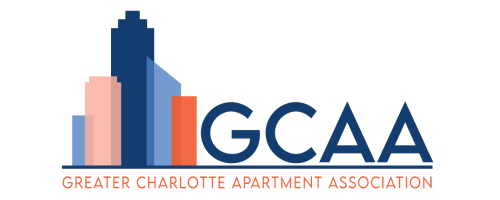What Charlotte’ first housing code update in more than a decade means for landlords
Changes to the city of Charlotte's minimum housing-code standards were passed on Monday night, but several council members and advocacy groups believe more work needs to be done on the policy.
The changes include several new requirements for landlords, such as better ventilation, secured and sealed fixtures, repainting chipped buildings and other amendments. The update also increases fines for landlords who violate the housing code — the current penalty is $100 for the first day of noncompliance and $10 every additional day; the new requirement is $100 per day, beginning on the first day of noncompliance — and sets new criteria for enhanced code inspections if the city receives multiple complaints about an apartment property.
The intended goal is to strengthen the city's housing code and hold landlords more accountable for unsanitary or unsafe living conditions, but it's unclear the extent of how the new guidelines will prevent poor housing conditions, especially in low-income rental units.
Lake Arbor Apartments on Tuckaseegee Road has been in headlines recently for deplorable living conditions, such as mold and rodent infestation, reported by renters there. Ownership of Lake Arbor recently said it would renovate the property but is vacating units as a result — subsequently, hundreds of residents are being displaced.
Some council members and Pete and Mary Kelly, co-founders of advocacy group Equitable Communities CLT, said they don't believe the new policy goes far enough to prevent a situation like the one at Lake Arbor from happening elsewhere.
"When unsafe living conditions are identified as systemic within a complex, extraordinary action should be taken by the city," Pete Kelly said, referencing measures like in rem remedy — in which the city can order repairs or demolish a building if an owner continues to be noncompliant with code — and property liens.
In rem remedy has been weighed by council as an option to use for the most negligent landlords. It gives the city power to make repairs or demolish a property in the most extreme cases, then putting a lien on the property and getting reimbursed through a foreclosure sale.
But before in rem remedy can be enacted, the city must take a number of steps, including citing an owner after regular code noncompliance and going to court. The city says less than 3% of all housing cases result in in rem remedy.
The property owner in question must also state they have no intention to make repairs, said Jane Taillon of the city's code enforcement department. In the case of Lake Arbor, Taillon said, the city would not have been able to use in rem remedy because that owner said it would make repairs.
"Maybe it’s us making a decision outside of the context of what that landlord (is) telling us," said council member Matt Newton.
Council voted in support of the housing-code update 8-3, with dissenting voters — Newton, Braxton Winston and Dimple Ajmera — in favor of the proposed changes with a caveat that the housing code remain in the neighborhood development committee for further review and action.
The policy changes go into effect on Jan. 1.
Kim Graham, president of the Greater Charlotte Apartment Association, said late Tuesday that her organization came out mostly in support of the ordinance changes after working with city staff over the past several months. The GCAA and other groups, including REBIC and other affordable-housing organizations, raised myriad concerns relating to potential unintended consequences of the policy, including on naturally occurring affordable housing.
"We didn't want instances where one code inspector and sees one thing and somebody comes in behind them and sees something different," Graham continued, adding a lot of the subjective language was refined. "We're hopeful that what has been implemented will prevent future instances of rental-property owner abuse of tenants and gross trampling of tenants’ rights."
Council member Justin Harlow, who chairs the neighborhood development committee, said at Monday's meeting that the committee and city staff have been working on the policy since the spring and felt the changes represent "positive progress," making it more difficult for landlords to be bad actors. Many council members, even those who voted for it without conditions, agreed the policy will need to be continually reexamined over time. Before last night's vote, the housing code had not been updated since 2008.
"Most of the issues are, is it really sufficient, is it going to accomplish what we want to do? I think it gets us closer," said council member Ed Driggs, who sits on the neighborhood development committee.
Some councilors called on city staff and inspectors to be more proactive in code enforcement. Taillon said the city has 40 inspectors, 12 of which are dedicated to minimum housing.
"There are actionable paths that we can go down under the guise of creating policy as it relates to our minimum housing ordinance," Winston said. "We know we need to go further."
Written by Ashley Fahey, Charlotte Business Journal
